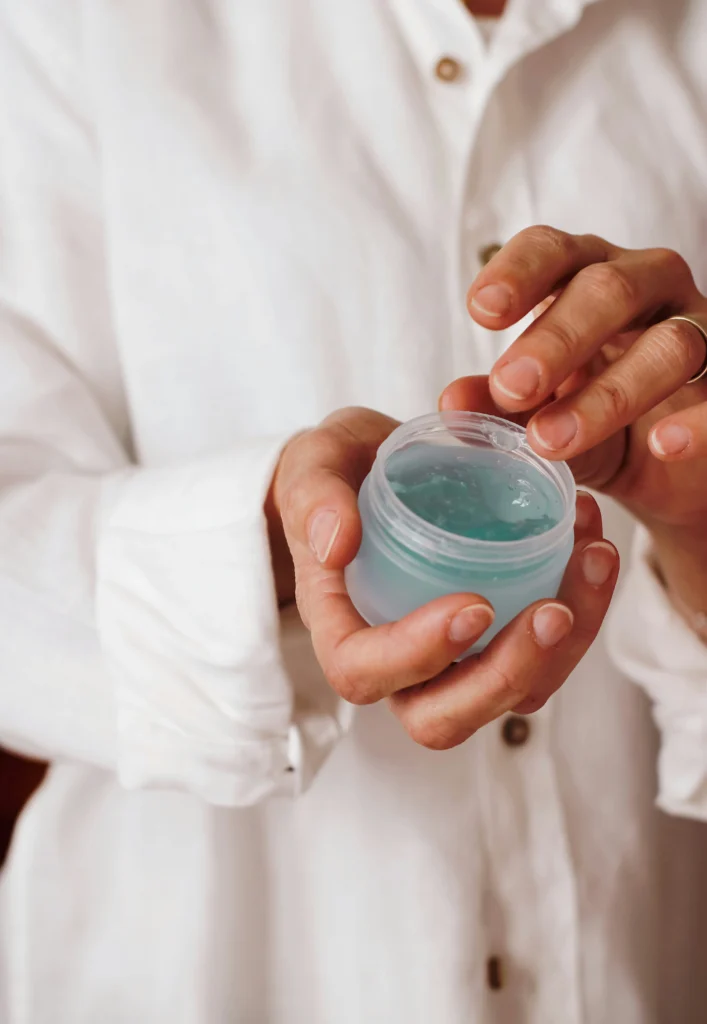Is collagen the fountain of youth or just good PR? A new meta-analysis finds its glow may fade without pharmaceutical-funded support
Is it time to ditch the collagen supplement and reach for a piece of salmon instead? A new meta-analysis casts doubt on the effectiveness of collagen supplements for improving signs of skin aging, raising questions about the role of industry-funded research in shaping beauty and wellness trends.
Collagen is a major structural protein found throughout the body, including in skin, hair, nails, tendons and bones. It works alongside substances like hyaluronic acid and elastin to maintain skin elasticity, volume and moisture. While the body naturally produces collagen using amino acids from foods like meat and fish, production declines with age and can be further reduced by sun exposure, smoking and alcohol consumption.
And with longevity top of mind and beauty routines doubling as wellness rituals, it’s no wonder collagen has become a go-to for consumers chasing smoother, younger-looking skin. But has the science caught up with the hype?
The study, published in The American Journal of Medicine, examined 23 randomized controlled trials involving 1,474 participants. While the aggregated data suggested collagen supplements improved skin hydration, elasticity and wrinkles, those effects were absent when researchers limited their analysis to high-quality studies or trials without pharmaceutical industry funding.
“Similarly, high-quality studies revealed no significant effect in all categories, while low-quality studies revealed a significant improvement in elasticity,” the authors noted, concluding that there is currently no clinical evidence to support the use of collagen supplements to prevent or treat skin aging.

While collagen drinks, supplements and creams have gained traction for their promised skin benefits, the gap between the overall results and the subgroup findings underscores how industry funding and study quality can sway outcomes, a longstanding concern in nutrition and supplement research.
The recent meta-analysis also echoes conclusions drawn by Dr. Payal Patel and Dr. Maryanne Makredes Senna in a 2023 Harvard Health article, which referenced a review of 19 studies published in the International Journal of Dermatology showing that collagen users experienced improvements in skin firmness, suppleness and moisture. But there’s a wrinkle, Patel noted.
“That sounds promising, but it’s unclear if these skin improvements were actually due to collagen,” she wrote. “Most of the trials used commercially available supplements that contained more than collagen: vitamins, minerals, antioxidants, coenzyme Q10, hyaluronic acid and chondroitin sulfate were among the additional ingredients.”
They also point to a handful of randomized controlled trials showing that collagen supplements rich in the peptides prolylhydroxyproline and hydroxyprolylglycine may improve skin moisture, elasticity and wrinkles. Still, they emphasize that larger, high-quality studies are needed to determine whether these products are “helpful and safe” to use long term.
“At this time, there isn’t enough proof that taking collagen pills or consuming collagen drinks will make a difference in skin, hair or nails,” they wrote. “Thus far, no human studies have clearly proven that collagen you take orally will end up in your skin, hair or nails.”
Instead of relying on collagen supplements, Patel and Senna recommend starting with the basics: following a healthy lifestyle, eating a balanced diet with protein-rich foods, avoiding smoking, limiting alcohol and protecting your skin with sunscreen and UV-protective clothing.



